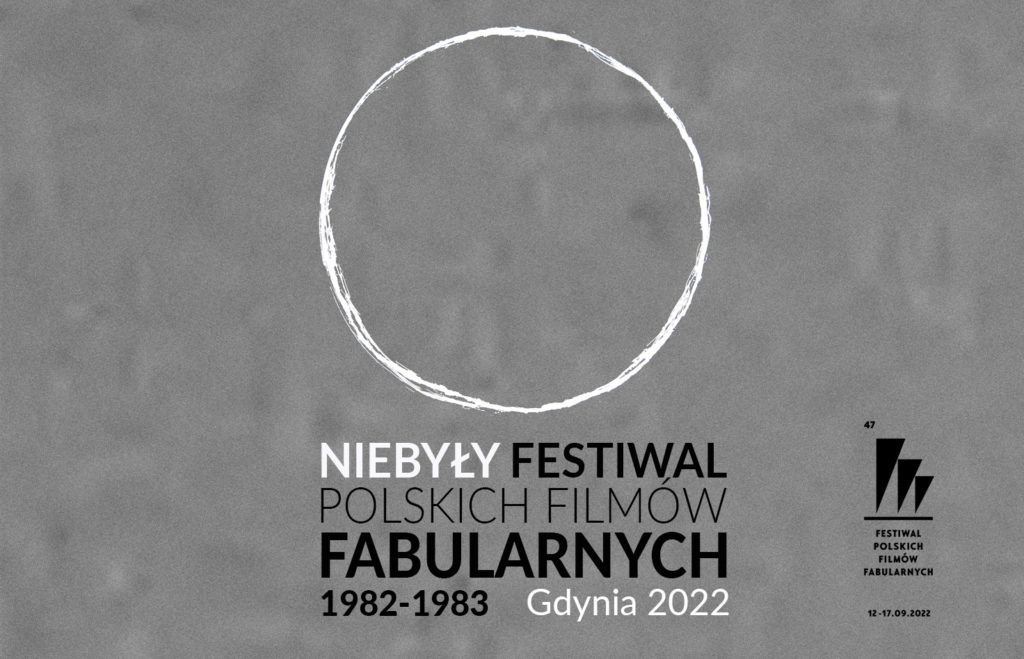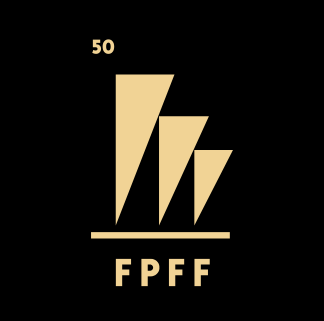Missing Polish Film Festival

Exactly 40 years ago, the Polish Film Festival did not take place – due to the introduction of the martial law. The following edition went the same way. Some of the films took part in competitions held later, and even were granted the highest awards. In 1984, the main award went to Austeria by Jerzy Kawalerowicz, and in 1987, to The Mother of Kings by Janusz Zaorski. In 1989, shortly after the fall of communism, the festival presented the so-called shelved films, including Interrogation by Ryszard Bugajski. Some of the productions, however, have never been screened at the festival, though they deserved that.
This year, as part of a performative game, we have decided to hold the missing film festival in Gdynia – to appoint the jury and grant the award. Miłosz Stelmach – a film expert and section curator – proposed a list of 8 films which were made at that time and have never been presented at the festival. The list includes, among others, gems such as The Issa Valley by Tadeusz Konwicki, An Uneventful Story by Wojciech Jerzy Has, also The Wolf by Marek Piestrak and Fun and Games by Tadeusz Junak – a film which has never been distributed, remaining the last shelved film from the Polish People’s Republic period. Thanks to the co-operation with the Documentary and Feature Film Studios (WFDiF) and the 35mm.online streaming service, the viewers will have an opportunity to participate in a review of as many as 17 films, watched on their own computers, smart phones, tablets and TV sets (smart TV).
The jury will comprise three persons born between 1982 and 1983: Dorota Masłowska, Kasper Bajon and Piotr Kurpiewski. Together, they will grant the award to the winner. It will be a brick – a symbolic award, from The Man of Marble associated with the Tri-city festival. In 1977, Andrzej Wajda presented in Gdańsk his film The Man of Marble, but the then head of cinematography, Janusz Wilhelmi, who wanted to antagonize the Polish film environment, influenced the jury so that they did not grant the award to Wajda but to Krzysztof Zanussi for Camouflage. The journalists gathered at the festival decided to honour Wajda with an out-of-competition award – a brick – the most important prop in the film, and at the same time a symbol of disagreement with the acts of public authorities. This year, the award will be granted to the best film of the missing festival.
“For me, the most interesting thing about this film game — inspired by Professor Tadeusz Lubelski’s book Niebyła historia kina PRL [The Missing History of PRL’s Cinema] — is the opportunity to see into the soul of Polish society of those years through cinema. Films are never made in a vacuum; they result from what the filmmakers see outside their windows, and in what time and place they live. Watching these 8 films (or even 17 — thanks to the co-operation with the WFDiF 35mm.online film service, where an extended review will be held), we can move back in time and see what frictions and emotions accompanied Polish filmmakers and — more broadly — Polish society in those darkest years of the late last century.” — emphasizes Tomasz Kolankiewicz, the Artistic Director of the Festival. What’s more, Tadeusz Lubelski has agreed to write an account of the missing festival — in the spirit of the epoch. It will be published in the December issue of the monthly magazine Ekrany
The Missing PFF is a unique opportunity to discover films that, for various reasons, have been overlooked in the history of Polish cinema. In a symbolic gesture, we want to restore them to their rightful place in the PFF programme, which they were deprived of by historical circumstances, and perhaps also in the minds of cinephiles.What is particularly important to me, is that each film will have a substantive casing in the form of a meeting with the filmmakers or a life commentary, thanks to which it will be possible to learn more about the context of their creation and (non)functioning in the reality of martial law” —says Miłosz Stelmach, curator of the Missing Polish Film Festival.
“Knowing the films that were made in 1982 and 1983, we can imagine these missed editions of the festival, probably some of the best ever, as a celebration of arthouse cinema, a triumph of films made possible by the several months of Solidarity. The films that were strongest in their political message received recognition only years later. Some still remain on the sidelines of attention, despite the fact that they make up that world of reality and imagination, which had not been presented in time to the public. The online collection on WFDiF’s streaming platform https://35mm.online is an extension and complement to the Missing Polish Film Festival presented this year at the 47th Polish Film Festival in Gdynia” —says a 35mm.online streaming platform editor Monika Talarczyk.
List of films of the Missing Polish Film Festival:
DEBUTANTE, directed by: Barbara Sass / after the screening, a meeting with Dorota Stalińska
THE ISSA VALLEY, directed by: Tadeusz Konwicki / after the screening, a meeting with Anna Dymna
FORT 13, directed by: Grzegorz Królikiewicz / before the screening, Miłosz Stelmach’s introduction
AN UNEVENTFUL STORY, directed by: Wojciech Jerzy Has / after the screening, a meeting with Grzegorz Kędzierski and Hanna Mikuć
REVENGE, directed by: Tomasz Zygadło / before the screening, Miłosz Stelmach’s introduction
THE WEATHER FORECAST, directed by: Antoni Krauze / before the screening, Miłosz Stelmach’s introduction
THE WOLF, directed by: Marek Piestrak / after the screening, a meeting with Marek Piestrak
FUN AND GAMES, directed by: Tadeusz Junak / after the screening, a meeting with Ryszard Lenczewski
More films to watch on WFDiF streaming platform: https://35mm.online
The author of the graphic identification of the Missing Polish Film Festival is Laura Pawela.
The 47th Polish Film Festival will take place between 12th and 17th September 2022.


